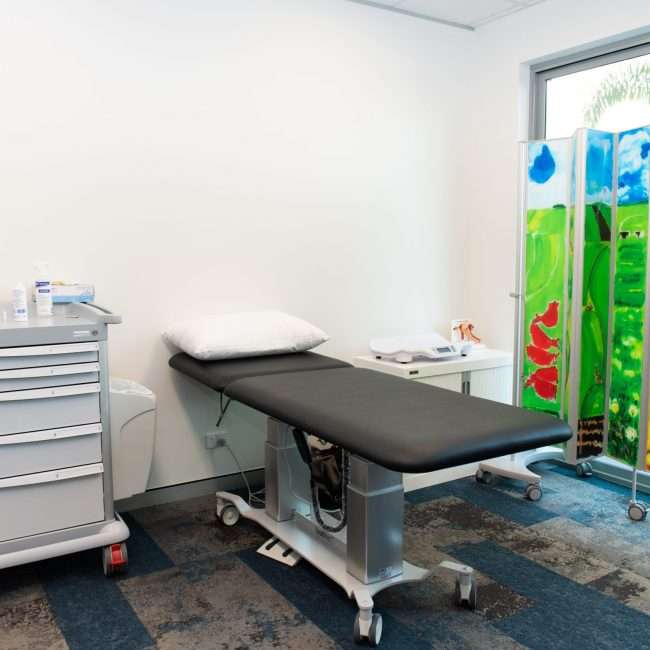Immunisations & Vaccinations
Vaccinations are important to control the spread of contagious dangerous diseases and infections.

IMMUNISATIONS AND VACCINATIONS SOUTHPORT DOCTORS
Vaccinations are an important in offering immunity against harmful infections and diseases
Vaccinations and immunisations are important to control the spread of contagious dangerous diseases and infections.
Vaccinations work by building up your body’s immunity by introducing your body to either dead or weakened bacteria, which causes antibodies to grow and fight off the bacteria.
However, this process does not occur immediately, as your body needs time to produce these antibodies. Your immune response takes approximately two weeks.
Next time your body is exposed to the disease, it is able to respond quicker and produce antibodies faster.
At Southport doctors we recommend following the guidance of the Australian National Immunisation Schedule for children, and the advice of your doctor or travel doctor for what vaccinations to receive while travelling overseas. Do not take any risks.
Who requires vaccinations?
Everyone should receive the vaccines underlined by the Australian National Immunisation Schedule. However, there are some medical conditions (weak immune system, etc) that make vaccines dangerous.
Vaccinations are highly recommended for:
- Overseas travel
- Pregnant women
- Newborn babies
- Have a newborn baby
- Elderly people
- Medically at risk
Australian National Immunisation Schedule
The National Immunisation Program (NIP) involves a series of vaccinations given at different periods of life, ranging from birth to adulthood to help you become immunised. It is recommended to have the vaccinations on time following the guide set out by the Australian Department of Health.
All vaccinations in the NIP are free for children, people at risk, Aboriginals and Torres Straight Islanders.
Find the National Immunisation Schedule here.
Why should I vaccinate my child?
Vaccinations are important for protecting your child’s health from harmful, potentially life-threatening diseases. The NIP is in place to help your child build up immunity against certain diseases and infections.
Children who are unvaccinated will not be able to attend childcare and may not be able to attend some schools. Unvaccinated children pose a risk to other children. Childcare and schools have the right to refuse enrolment if a child is unvaccinated.
However, some children may have medical conditions which prevent some vaccines being safe to use, and in this case a school cannot refuse enrolment.
There are many misconceptions about vaccinations, which cause some parents to be anti-vax, however the misconceptions have been proven false. Vaccinations do not cause sudden infant death syndrome, autism, asthma, disease and do not contain harmful toxins. Adverse effects are very rare reactions to vaccines and should not deter anyone.
Influenza vaccine (flu)
Influenza is the common disease of the respiratory tract that affects thousands of Australians per year.
On average, there are around 300,000 GP consultations, 18,000 hospitalisations and 3,500 deaths per year caused by influenza. These numbers are not small, and flu vaccinations are recommended.
The influenza vaccine needs an annual refresher as the virus strand changes so frequently, causing last year’s vaccine to become irrelevant or less efficient.
All Australians are recommended to receive the vaccine, unless certain medical conditions prevent it. People who are at higher risk should definitely have the vaccine.
Travel required vaccinations
If you travel outside of Australia, it is recommended to receive the appropriate preventable vaccinations for the foreign country you are going to visit.
You should consult your doctor or travel health clinic for advice around six to 12 weeks before travelling overseas.
The vaccines depend on age, medical conditions, pregnancy, travel location and season. For more information on travel vaccinations visit our travel vaccinations page.
Find travel health tips and vaccinations by the Australian Department of Health here.
Do vaccines offer 100% protection?
No, there is no vaccine which is 100% effective.
Routine childhood vaccinations are generally effective in around 85-95% of people and statistics say that up to 15 out of 100 people receiving vaccinations do not develop full protective immunity.
At Southport Doctors, our team recommends that everyone receives the vaccines outlined by the NIP and ones suggested for overseas travel. Vaccines promote a safer community and protect the wellbeing of yourself and others around you. The safety of you, your children and the community is our number one priority. If you require vaccinations for yourself, your child, or plan to travel overseas, then please book and appointment to see one of our doctors at Southport Doctors. Please click here or call us on (07) 5531 3205.
Make An Enquiry
Please fill in the online enquiry form to ask a question or request an appointment.
Meet The Immunisations And Vaccinations Team
Frequently Asked Questions
What do vaccinations do?
Vaccinations work to immunise people against certain diseases and viruses. This immunisation helps your body to be prepared to fight the illness if you happen to get sick.
Do vaccinations offer 100% protection?
No vaccine offers 100% immunity. You can still fall ill with the disease or virus you were vaccinated against; however, the vaccination will most likely decrease the severity and save you from fatal consequences.
How long does immunity from vaccines last?
Very few vaccines make you immune for your entire life. Many vaccines you have as a child are for issues that do not pose as serious a risk once you are an adult. Some vaccines are needed yearly like the flu shot or every few years such as tetanus.
How often do I need the flu shot?
The flu strand changes yearly and so the vaccine also changes annually. This means you can have flu shots yearly to help prevent falling ill from the respiratory issue which claims hundreds of thousands of lives every year worldwide.
How do I know which vaccines my child needs?
The Government’s National Immunisation Schedule outlines the vaccinations and recommended times that a child should get.
Who are vaccinations free for?
Vaccinations listed in the National Immunisation Schedule are free for children, teenagers medically at risk, Aboriginals and Torres Strait Islanders. Some vaccines such as the influenza vaccination are free for eligible at-risk patients, such as pregnant women or elderly people.
Why should my child be immunised?
Your child should be immunised to prevent the spread of contagious diseases and infections. Unvaccinated children pose a health risk to the community.
Can my child be refused entry to childcare or schools?
If your child is not vaccinated, he or she will be unable to attend childcare in Australia. Schools also have the right to refuse admission. Schools will actively promote the importance of vaccinations.
Can vaccinations harm my baby?
Babies have strong immune systems, and they can handle far more germs than what vaccines give. The risks of vaccinations are low and serious reactions are very rare. The rarity of these serious reactions should not even be compared to life threatening diseases vaccinations help prevent.
Do immunisations cause autism?
No, many studies have been undertaken and found no link between vaccines and autism.
Side effects of vaccinations
The only side effects are usually soreness, including possible swelling, redness and a burning sensation at insertion site. You may experience tiredness or mild fever one or two days after. However, for live vaccines, side effects may take up to seven to ten days.
Extreme side effects are very rare. If side effects such as full arm swelling or bodily issues occur, please contact your GP for advice.
Why does my child need vaccines for diseases that are eliminated?
Even if a disease is eliminated within Australia, it may still be a major health risk in other parts of the world. So, vaccinating your child is the safest option.
Which vaccines do I need for travelling?
Vaccinations for travelling depend on your location of travel, age and health. Speak to your GP or travel health worker for information.





















